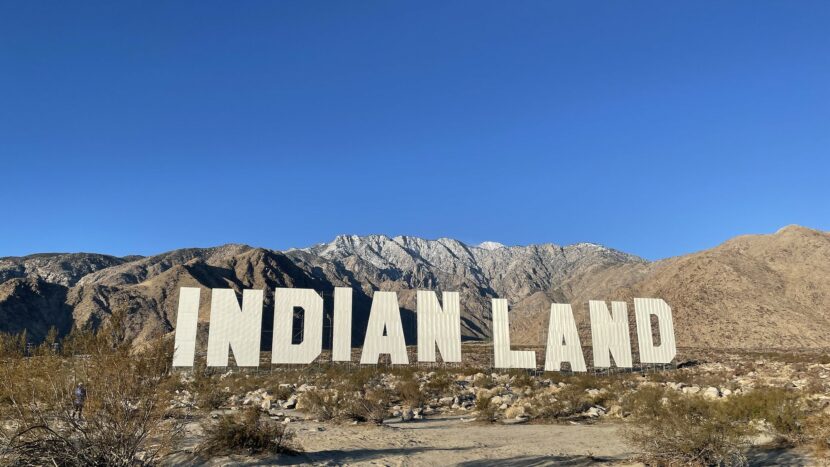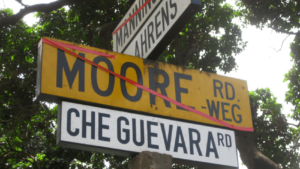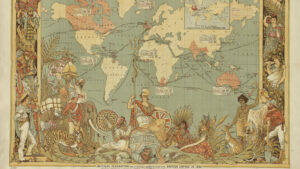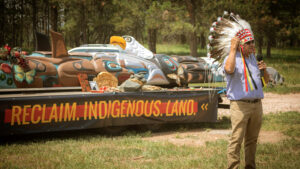Why do place names matter—how do they function in the world? What histories, perspectives and ways of relating to the land do place names encode? How does the movement to undo the colonial map relate to other movements that reckon with North American settler-colonial history—to topple Confederate and colonial monuments, decolonize museums, and overhaul school curricula?
In this panel, we’ll hear from artists and activists whose interventions reimagine monuments and maps, affirming the signposts and wayfinding signs that point to a world beyond the colonial and capitalist enclosure.
SPEAKERS (list in formation)
Susan Blight (Anishinaabe, Couchiching First Nation) is an interdisciplinary artist working with public art, site-specific intervention, photography, film and social practice. Her solo and collaborative work engages questions of personal and cultural identity and its relationship to space. Susan is co-founder of Ogimaa Mikana, an artist collective working to reclaim and rename the roads and landmarks of Anishinaabeg territory with Anishinaabemowin place-names, and is a member of the Indigenous Routes artist collective which works to provide free new media training for Indigenous youth. Susan received a Bachelor of Fine Arts in Photography. a Bachelor of Arts in Film Studies from the University of Manitoba, and a Masters of Fine Arts from the University of Windsor in Integrated Media. She is currently a PhD candidate in Social Justice Education at the Ontario Institute for Studies in Education (UofT) and her dissertation looks at the visual and spatial formations of Anishinaabeg geographies of resistance. Susan is Delaney Chair in Indigenous Visual Culture at OCAD University and an Assistant Professor in the Faculty of Arts & Science.







